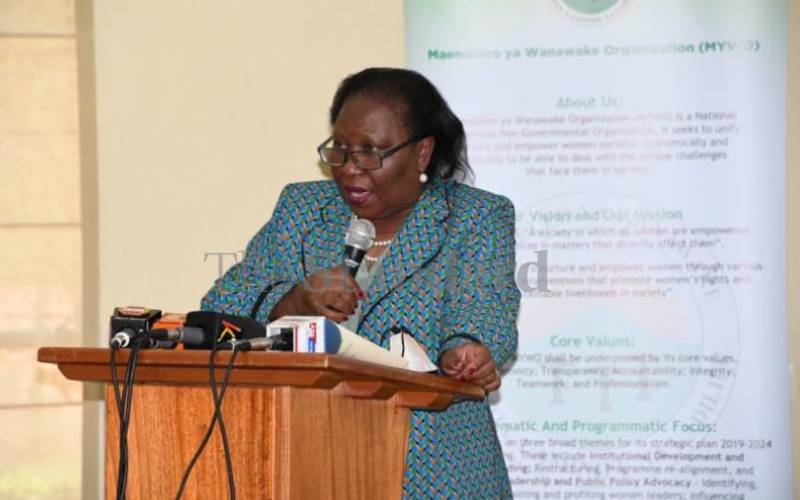×
The Standard e-Paper
Join Thousands Daily

Maendeleo ya Wanawake Organisation (MYWO) has a rich history advocating for women in Kenyan society but, as it marks its 70 years of existence, the organisation is at a crossroads navigating its past and the needs of women in the 21st century.
Nominated MCA Lucy Ngugi, 35, is the Muranga County chairperson for MYWO and the youngest to have this position.